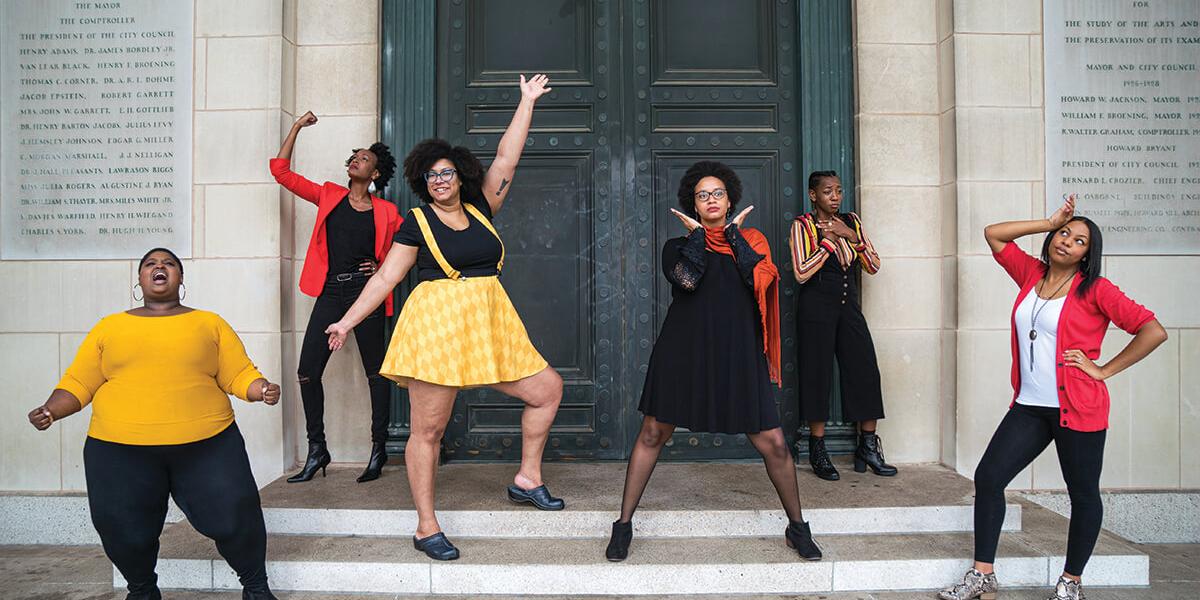Arts & Culture
Two Strikes Theater Collective Sets the Stage for Black Women
Members represent the identities and lives of Black women through the stories they tell.
The stage has a long, dark history of centering on white men, but Black women in theater are no longer willing to stand in the wings, and a local group—the Two Strikes Theater Collective—is taking a leading role in disrupting the status quo.
“For so long, other people have told us to do it this way or be in that role,” says executive director Aladrian Wetzel. “Black women have to realize that our voices are important.”
The group was formed in 2019 after actress Rachel Wilson proposed the start of “Black Girl Magic Productions” on Facebook, intriguing Wetzel and three fellow thespians—Christen Cromwell, Lauren Erica Jackson, and Dana Woodson. A few affirming comments, happy hours, and one name change later, Two Strikes—referring to the two strikes against Black women for their gender and race—was born.
Members use their experience from other playhouses such as Single Carrot Theatre and Fells Point Corner Theatre to represent the identities and lives of Black women through the stories they tell.
“We decided to be unapologetic about the kind of work that we want to do,” says Wetzel. “We want Black women to be showcased, we want Black women on a pedestal.”
This August, with theaters still closed to in-person gatherings due to COVID-19, the collective held a virtual script-writing workshop, and in October, they hosted the Brown Sugar Bake-Off Play Festival in partnership with the woman-led Strand Theatre Company, bringing 10-minute plays to the virtual stage.
As cancellations continue to ripple through what would normally be a traditional theater season, the pandemic has given Two Strikes time to plan and fundraise. They’re also challenging conventions with programming like radio dramas next spring.
“It’s exciting, important, and necessary to make sure the individual stories of Black women are showcased, uplifted, and amplified inside of people’s homes,” says Wetzel. “Theater doesn’t have to happen in four walls.”
